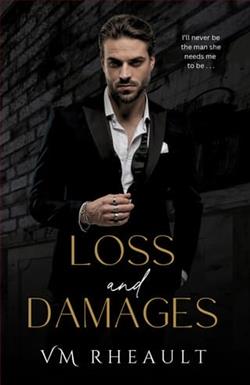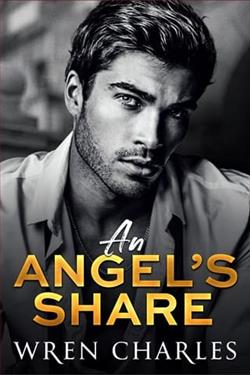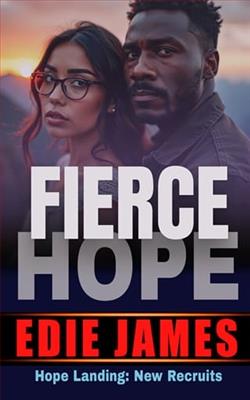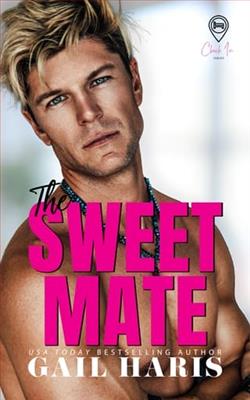Page 152 of Stolen Harmony
I gestured toward the corner where Rowan sat, laptop balanced on his knees, looking up from the email he'd been answering. His dark hair was shorter now, more professional, and he'd traded his usual ripped jeans for khakis that made him look older, more serious. But his eyes were the same, warm and intelligent and completely focused on me in a way that still made my pulse quicken.
“Rowan Hale and his band, Broken Harbor, relocated from New York five months ago,” I continued, my voice steady despite the way my heart was hammering. “They've been working out of our studio, and their debut album just hit number three on the indie charts.”
Murmurs of recognition rippled through the room. Even the most traditional members of Harbor's End's business community couldn't argue with success, especially when it brought money and attention to their town.
“The band's planning to stay permanently,” I said, watching faces for reactions. “Rowan's convinced them that Harbor's End is the perfect base for their operations. Quiet enough to focus, connected enough to reach their audience, and small enough that they can actually afford to live here while they build their careers.”
Marge nodded approvingly. She'd always been practical about these things, more interested in economic impact thansocial scandal. “That's excellent news, Elias. Young talent choosing to stay instead of flee is exactly what we need.”
“There's one more thing,” I said, and this was the moment that would either destroy my standing in this community or finally free me from the weight of living a lie. “Rowan and I are together. Have been for a while now. I wanted you to hear it from me before you heard it from anyone else.”
The silence that followed was deafening. I could hear the hum of the air conditioning, the distant sound of traffic on Harbor Street, the almost audible sound of brains processing information they weren't sure how to categorize.
Richard Stern, who'd been leading the opposition to waterfront development for the past decade, cleared his throat. “Well,” he said carefully, “that's... certainly personal information.”
“It is,” I agreed. “But it's also relevant information, since Rowan's success is tied to our studio, and our studio's success is tied to this community. I wanted to be transparent about potential conflicts of interest.”
What I didn't say was that I was tired of hiding, tired of pretending that the best thing that had happened to me in five years was just a business relationship. Tired of watching Rowan shrink himself to fit into the shadows I'd asked him to inhabit.
“Does this change anything about your professional relationship?” asked Janet Morrison, who ran the tourism board with the iron fist of someone who'd been dealing with difficult personalities for thirty years.
“Only that it makes it stronger,” Rowan said, speaking for the first time since I'd started my announcement. His voice was calm, confident. “Elias is the best producer I've ever worked with. The fact that I'm in love with him just means I'm lucky enough to have the best of both worlds.”
A few people shifted uncomfortably in their seats. Harbor's End was progressive enough to accept gay relationships in theory, but having one announced in a business meeting was probably testing some boundaries.
“Any concerns about professional objectivity?” asked Dr. Patterson, who'd been skeptical of every new initiative for as long as I'd known him.
“None,” I said firmly. “If anything, having a personal stake in Rowan's success makes me more committed to doing excellent work, not less. And since that work has resulted in the most successful year in our studio's history, I'd say the results speak for themselves.”
Margaret leaned forward, her business instincts overriding any personal reservations she might have had. “What does this mean for future projects? Are we looking at Harbor's End becoming a destination for indie musicians?”
Rowan's face lit up, and I could see the passion that had driven him to rebuild his life from the ground up. “Actually, yes. We're in talks with three other bands about relocating here. The combination of affordable living, professional facilities, and creative community is exactly what a lot of artists are looking for.”
“Creative community?” Richard's eyebrows rose. “What does that mean, exactly?”
“It means that art doesn't happen in isolation,” I said. “Musicians need other musicians, artists need other artists. What we're building here is an ecosystem where creative people can support each other, collaborate, push each other to be better.”
“And make money,” added Janet with a pragmatic smile. “Don't forget the making money part.”
“Definitely don't forget the making money part,” Rowan agreed, grinning. “Broken Harbor's royalties alone have contributed more to the local tax base this year than any business started in Harbor's End in the past decade.”
The mood in the room shifted perceptibly. It was one thing to disapprove of unconventional relationships in the abstract, but it was another thing entirely to disapprove of them when they were bringing revenue and recognition to a town that desperately needed both.
“Well,” said Marge, standing up and gathering her papers with the brisk movement of someone ready to move on to the next agenda item, “I think that's all very promising. Thank you for the transparency, Elias. And congratulations to both of you on your professional and personal success.”
The meeting broke up with the usual mixture of side conversations and hurried exits. A few people made a point of shaking both our hands, offering congratulations that seemed genuine. A few others left without speaking to us at all, which was probably the best outcome I could have hoped for.
“How do you think that went?” Rowan asked as we walked to the parking lot, his laptop bag slung over his shoulder.
“Better than I expected, not as good as I hoped,” I said honestly. “But at least it's done. No more hiding, no more pretending we're just business partners.”
“No more separate cars to meetings,” he added with a grin. “That was getting ridiculous.”
He was right. For the past year, we'd been playing an elaborate game of professional distance whenever we were in public, arriving separately, sitting apart, avoiding any casual touches or meaningful looks that might give away the fact that we'd been sharing a bed for months. It had been exhausting andultimately pointless, since half the town probably suspected anyway.
“Caleb called this morning,” Rowan said as we reached my truck. “The label wants to talk about a second album. They're thinking about a concept record, something that tells the story of a place instead of just individual songs.”
“Harbor's End?”















